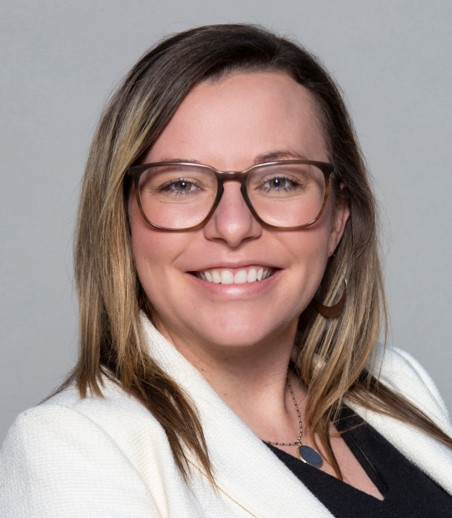- Home
- About Us
- Resources
- Events
- Members Only
- Contact Us
- Join Now
March 2023, Volume 18, Issue 2
TABLE OF CONTENTS
President's Corner
It is spring – I think! In Charlotte, North Carolina, the temperatures ranged from a low of 28 degrees to a high of 82 degrees in mid-March. In the western portions of the U.S. some states are seeing both record rain events and snow falls in the same area. Our climate is, and always has been, changing. Professional organizations, like communities and the residents that live in them, need to adapt as change occurs around them. Adaptation is a key element to resilient communities and will be the focus of our Spring Seminar. One of our 2023 Action Plan goals is To enhance member value for the benefit of the stormwater industry. As I stated in my January article, SESWA will be leveraging LinkedIn to promote its member services. As we prepare for the SESWA Seminar in April, I encourage you to take time to brush up on your LinkedIn skills. The Seminar provides a great opportunity to promote the value of being a SESWA member. To highlight the benefits of SESWA like SESWA posts promoting the Seminar, like and share pictures of dedicated stormwater professionals volunteering at the community service event and thank the sponsors and speakers that support and participate in the Seminar. I look forward to seeing you at the Seminar and/or later this year at the Annual Conference. If you are not able to attend either one, please remember you can continue to learn (and be prepared to adapt as change occurs) by participating on a committee, attending a webinar, reading the SESWA Forecast Newsletter, as well as, monitoring and contributing to SESWA’s Community Forum. Thank you for your dedication to SESWA and the stormwater industry overall. Dave Canaan SESWA’s Spring Seminar – It’s Not Too Late to RegisterIt’s not too late to register for SESWA’s 18th Annual Regional Stormwater Seminar, we have a few seats left! The Seminar will focus on Resilient Stormwater Management Solutions and will be held April 21, 2023 in Atlanta, GA. Presentations will address a variety of resiliency planning topics from defining, planning and measuring resiliency, to funding and the allocation of resources. View the agenda and register today to save your seat! Join Us for SESWA’s Spring Service Project – Only a Few Spaces LeftSESWA is excited about our upcoming service project in conjunction with this year’s Spring Seminar. Plan to join us in Atlanta, GA the morning of April 20, 2023 for this unique opportunity to give back to the environment and the community and spend time together with your peers. Register now to participate and give back to the community! Register today, onsite registration will not be available. Share Your Success Stories at SESWA’s Annual ConferenceJoin us October 4-6, 2023 for SESWA's 18th Annual Regional Stormwater Conference in Hilton Head, South Carolina as we explore stormwater innovations in the Southeast! Presentation submissions should be on case studies, evolving policy and regulatory information, new practices or techniques, research projects, etc. Professionals from federal, state and local government, the consulting community, product manufacturers and academia are invited to present. Complete all fields of the Presentation Submission Form. Hurry, your submission must be received no later than the close of business on March 31, 2023 to be considered. SESWA’s State Spotlight on North Carolina
WOTUS Rule Stumbles
|
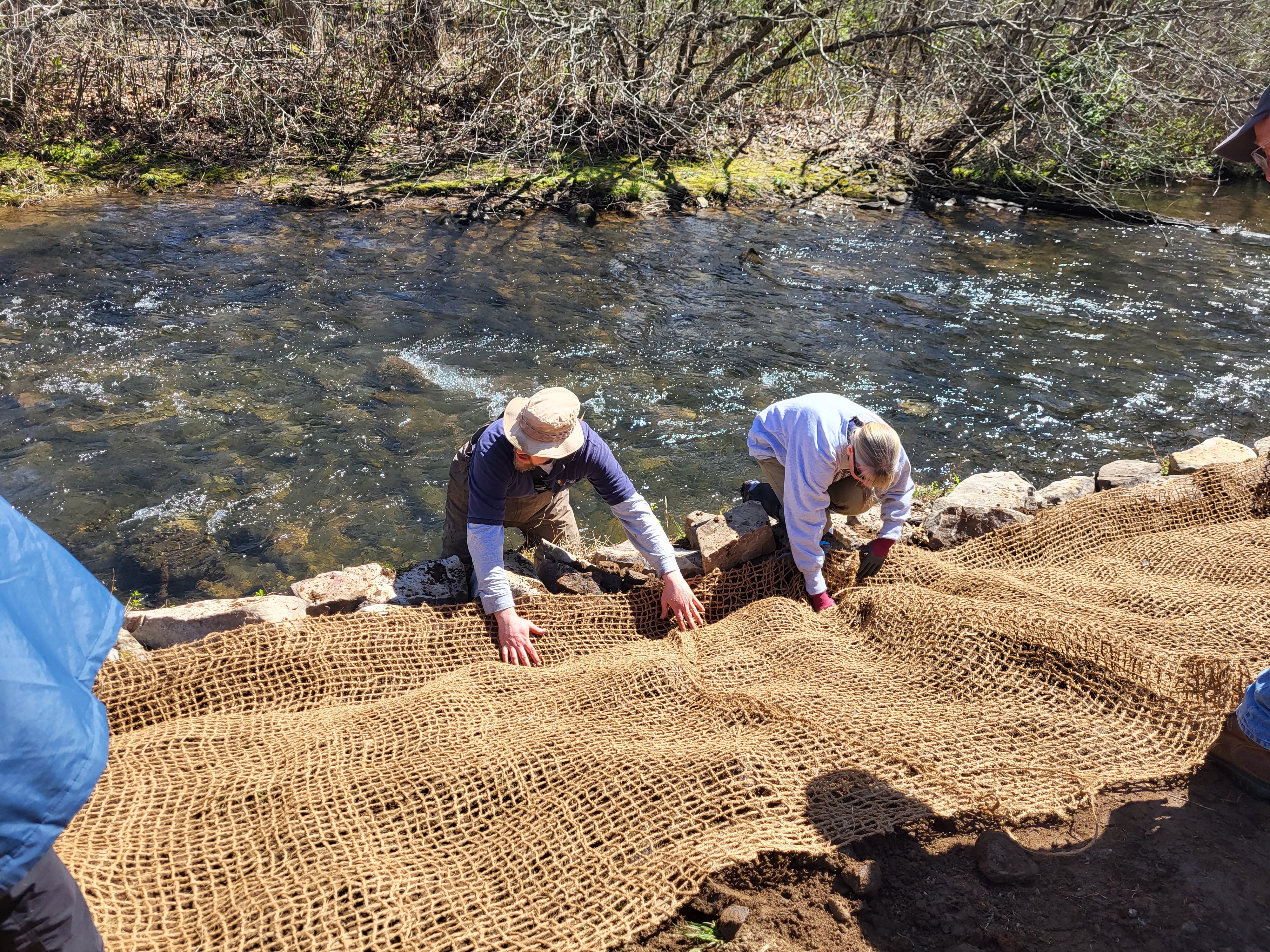 |
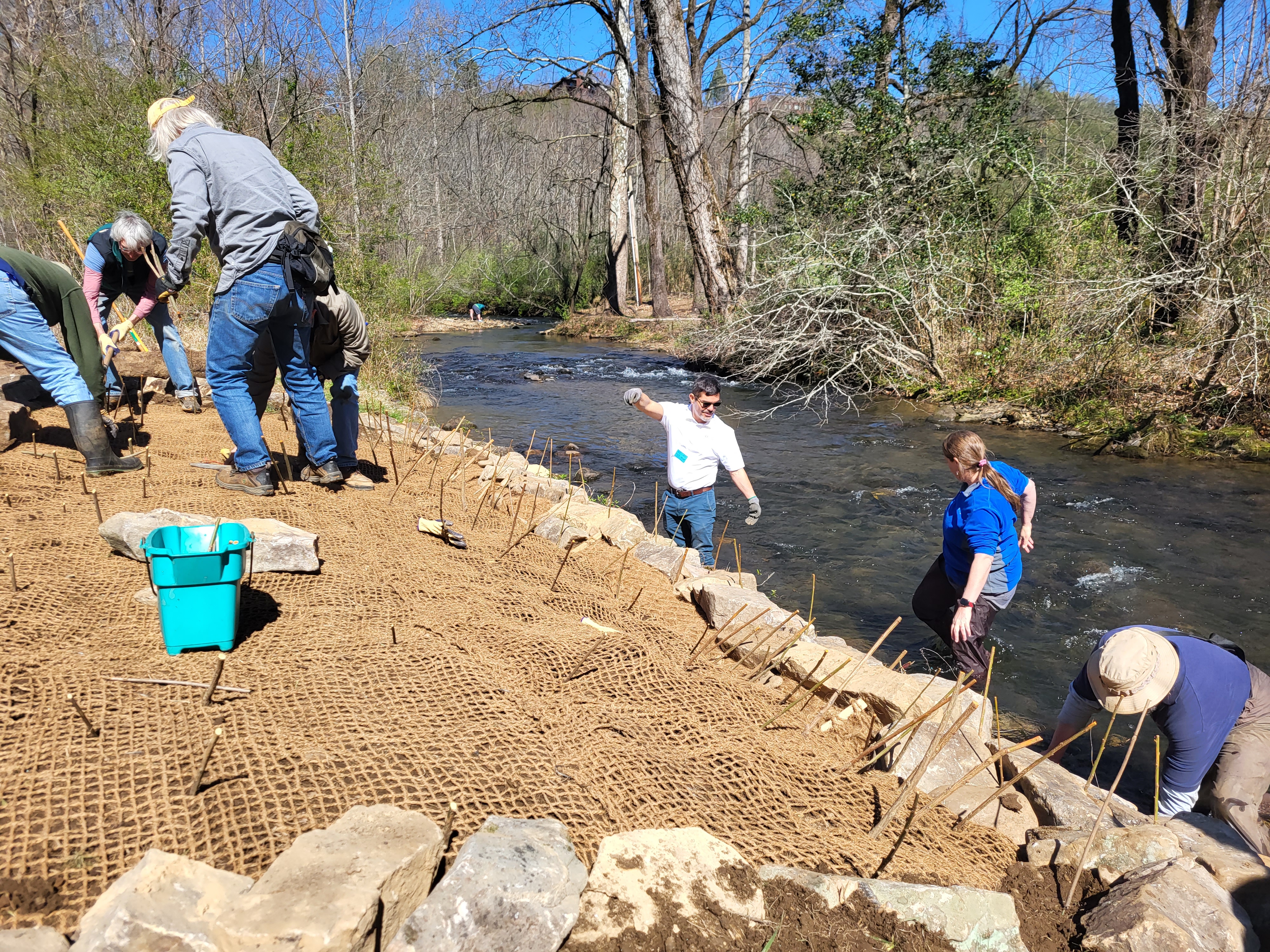 |
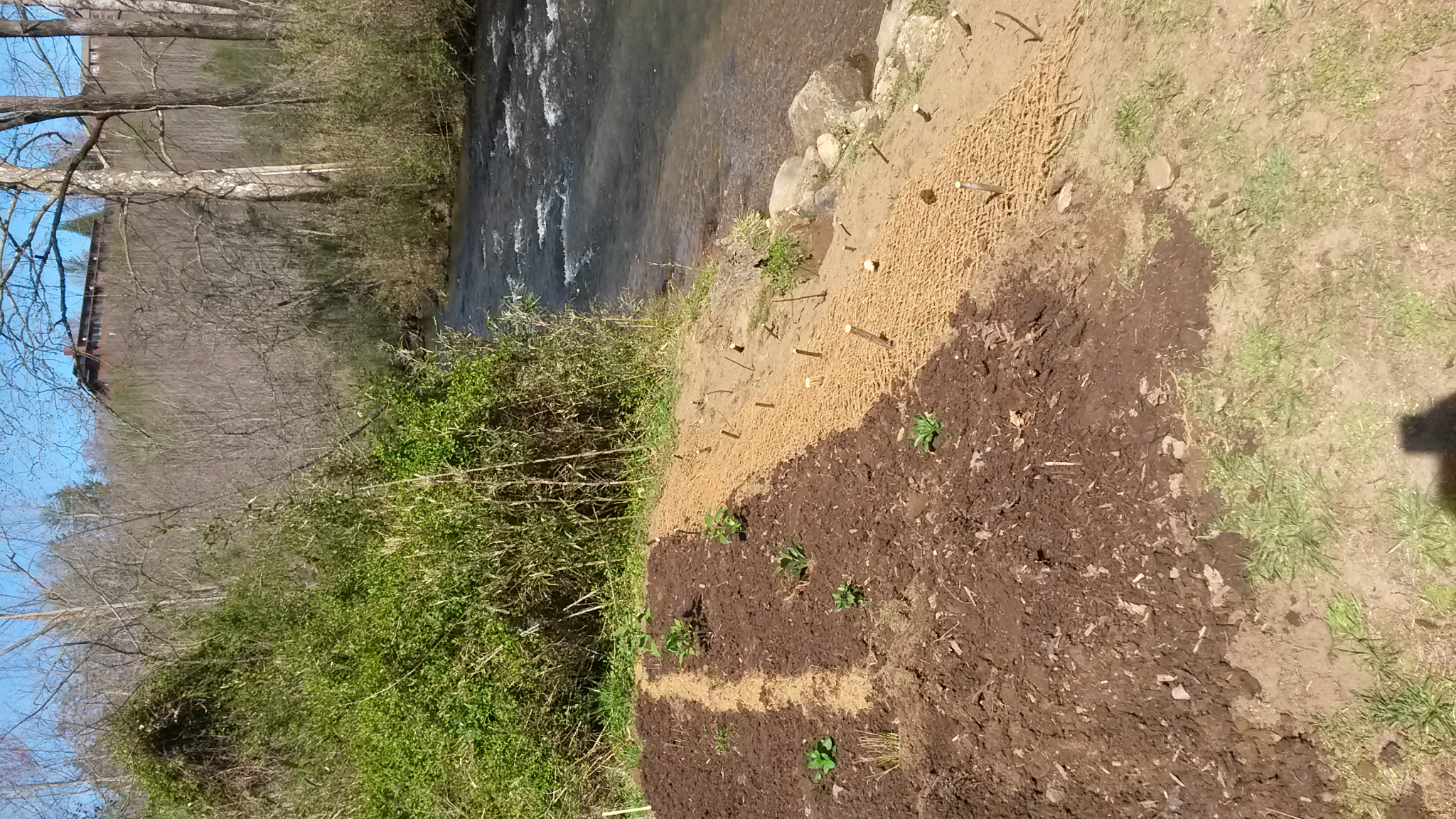 |
North Carolina Grant Funding Opportunities – More Funds Released
Daryl Hammock, City of Charlotte, NC & Stephanie MacDurmon, Brown and Caldwell
The North Carolina Department of Environmental Quality (DEQ) has released a list of awards funded by the American Rescue Plan Act, State Revolving Funds (including Bipartisan Infrastructure Law funds), and Community Development Block Grant funding. A list of funded construction projects and an interactive dashboard to find out more are located on the NC DEQ Division of Water Infrastructure site. The majority of awardees are smaller communities (non-Phase 1 MS4 permittees or unpermitted localities).
The next round of funding applications to include stormwater planning grants will be available at the end of the month. Applications are due by Monday, May 1 at 5:00 p.m. Complete planning grant details may also be found on the NC DEQ Division of Water Infrastructure site.
Other grant programs are also available for projects not eligible for the next round of American Rescue Plan Act funding, such as the Golden LEAF Foundation's Flood Mitigation Program, which will provide up to $250,000 per application for public infrastructure projects for flood mitigation. Applications will be accepted as long as program funds are available. More information is available on the Golden LEAF website.
Raleigh Rainwater Rewards Expansion - Equity and Stormwater
Ariel Bushel & Justin Harcum, City of Raleigh, NC
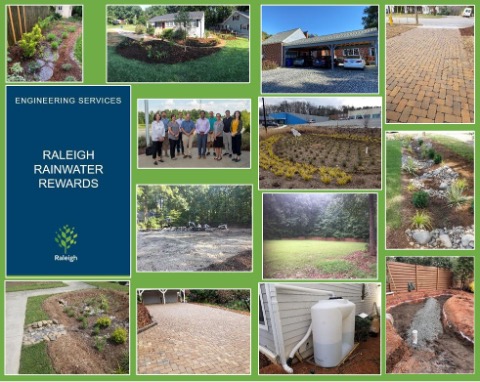 In 2010, the City of Raleigh implemented the Raleigh Rainwater Rewards (R3) program - a unique incentive program that utilizes approximately 1% of Raleigh’s stormwater utility fee annual revenue to facilitate the voluntary installation of water quality improvement projects on public and private properties throughout the City of Raleigh. Through the 75% - 90% reimbursement of approved costs to property owners, over 200 projects have been completed in the program’s twelve-year history. Project types have included green roofs, cisterns, silva cells, bioretentions/rain gardens, and impervious surface removal.
In 2010, the City of Raleigh implemented the Raleigh Rainwater Rewards (R3) program - a unique incentive program that utilizes approximately 1% of Raleigh’s stormwater utility fee annual revenue to facilitate the voluntary installation of water quality improvement projects on public and private properties throughout the City of Raleigh. Through the 75% - 90% reimbursement of approved costs to property owners, over 200 projects have been completed in the program’s twelve-year history. Project types have included green roofs, cisterns, silva cells, bioretentions/rain gardens, and impervious surface removal.
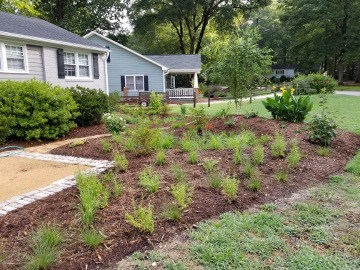 In 2022, Raleigh City Council designated American Rescue Plan Act (ARPA) funding to expand outreach and implementation of R3 projects in disproportionately impacted communities through a pilot program that offers 100% reimbursement of project costs. Collaboration with a range of stakeholders helped the City develop eligibility criteria to maximize limited funding to target communities that demonstrate the greatest need in response to the pandemic.
In 2022, Raleigh City Council designated American Rescue Plan Act (ARPA) funding to expand outreach and implementation of R3 projects in disproportionately impacted communities through a pilot program that offers 100% reimbursement of project costs. Collaboration with a range of stakeholders helped the City develop eligibility criteria to maximize limited funding to target communities that demonstrate the greatest need in response to the pandemic.
Staff hopes this pilot project will demonstrate the effectiveness of a water quality cost-share program approach to achieve water quality goals and will inform and support other municipalities on how to “retrofit” an existing program to better reach disproportionately impacted communities.
Holistic and Innovative Approaches for Flood Mitigation Planning and
Modeling under Extreme Wet Weather Events and Climate Impacts
Maria Price, City of Chattanooga, TN
Municipalities and utilities are facing unprecedented challenges in planning for extreme precipitation and flooding that are occurring more frequently and less predictably. The City of Chattanooga along with many other cities, utilities and research institutes, participated in an international grant from the Water Research Foundation led by Stantec Consulting Services on Holistic and Innovative Approaches for Flood Mitigation Planning and Modeling under Extreme Wet Weather Events and Climate Impacts (WRF 5084). The project created a user-friendly, interactive draft technical guidance document that will help to plan for and mitigate climate change impacts using state-of-the-practice integrative, holistic management approaches.
The report includes a high-level summary of the utility case studies, selected case study best practices, and individual case study interview summaries. Participating organizations discussed their climate change adaptation strategies, how they deliver effective public information programs, communicate risk, and best practices.
Many climate solutions are regional in nature and beyond political boundaries, thus there is a clear need to build regional coalitions that would be developed to include governance structure and cost-sharing programs. There is a widespread desire for a national-scale, authoritative future climate projection Dataset and the update to NOAA Atlas 14 (currently referred to as NOAA Atlas 15) should address these needs. Many communities now acknowledge that social vulnerability matters and flood planning can be re-cast from a health and safety perspective instead of simply reducing economic damages. This new desire to “not monetize decision-making” represents a paradigm shift in how flood mitigation planning is undertaken.
Potentially Concerning Stormwater Utility Fee Court Decision
David Mason, CDM Smith
A Pennsylvania Court found that local school system defendants, who are tax exempt, were not required to pay the local (Borough of West Chester) stormwater utility fee because the fee was determined to be a tax. The Court ruled that the charge was not associated with individualized services provided to particular customers, but rather included benefits enjoyed by the general public. This ruling will certainly have implications in Pennsylvania, but should be monitored for potential precedent elsewhere.
NACWA Corner
Provided by the National Association of Clean Water Agencies
Emily Remmel, Director of Regulatory Affairs
EPA releases proposed National Primary Drinking Water Regulations for PFAS, Movement on Biosolids – Spillover Impacts to Stormwater?
Federal movement to address PFAS concerns has been relatively slow compared to various state actions, but this is quickly changing. On March 29, EPA published its PFAS National Primary Drinking Water Regulation rulemaking in the Federal Register that will set enforceable standards for drinking water systems under the Safe Drinking Water Act.
Because EPA found PFOA and PFOS are likely to cause cancer, no concentration is safe in drinking water, and therefore EPA set a Maximum Contaminant Level Goal (MCLG) at zero. EPA is also proposing enforceable Maximum Contaminant Levels (MCLs) at 4 parts per trillion (ppt) for PFOA and PFOS, which reflects a concentration that is the most feasible treatment level and analytical quantitation level in finished drinking water. It also proposes to regulate four other PFAS compounds (GenX, PFBS, PFHxS, and PFNA) through a unitless Hazard Index approach that considers potential public health impacts from mixtures of these chemicals.
EPA also is moving forward standardizing a framework to screen and assess risks for chemicals found in biosolids, not limited to PFAS. The Scientific Advisory Board (SAB) biosolids panel has three upcoming meetings that will review the merits and practicality of the proposed framework. The framework considers 18 different exposure pathways of biosolids applied to an agricultural field, including runoff and erosion to surface waters.
On the clean water side, the reference dose values and cancer slope factors that were used to derive the recently proposed drinking water MCLG and MCLs for PFOA and PFOS will certainly be used in Clean Water Act calculations for developing recommended human health ambient water quality criteria under Section 304(a). States can then choose to adopt these criteria and incorporate them into water quality standards and set enforceable permit requirements. It is important to note that the MCLs can be more stringent than water quality criteria – so the proposed 4 ppt values for PFOA and PFOS do not necessarily correlate to potential Clean Water Act criteria or standards. EPA is currently working on drafting human health criteria for PFOA and PFOS that will complement the proposed aquatic life criteria it released last summer.
What does this all mean for stormwater? At the moment, not much.
Because of the unique aspects of the municipal separate storm sewer system (MS4) permitting scheme, and the ubiquity of PFAS, it is likely that PFAS will be detected in urban stormwater runoff. Even so, the typical BMPs MS4s deploy are passive and rely on natural filtration to mitigate sedimentation, not complex pollutants like PFAS. MS4s may have to begin monitoring for PFAS chemicals in the future, but as of now, it is unclear how states or EPA will tackle PFAS in stormwater and simultaneously provide a practical and implementable path forward.
If SESWA members have any questions, please do not hesitate to contact Emily Remmel, NACWA’s Director of Regulatory Affairs at [email protected] or 202-533-1839.
Don't see news from your state?
Please contact us with your news or share your comments on our newsletter by emailing us at [email protected].
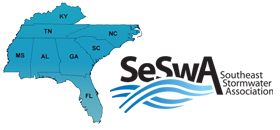
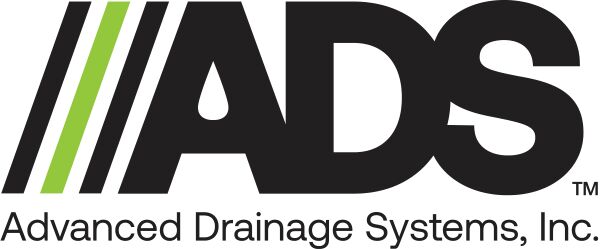

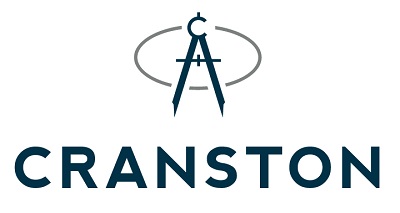
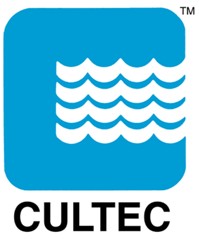
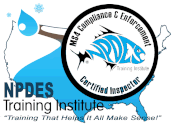


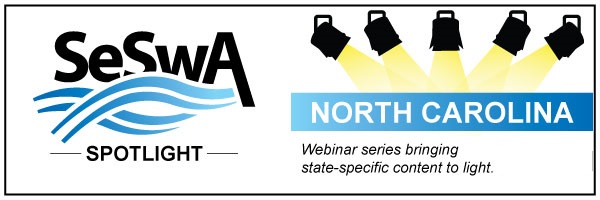 Registration is open for SESWA’s May 25th Spotlight Webinar Building Successful Stream Stabilization and Buffer Repair Programs. Join us for this free webinar to learn how the City of Raleigh’s Stormwater has implemented and enhanced three different stream stabilization programs to repair, rehabilitate, and strengthen streams on private city properties. The webinar will provide details about funding, techniques and collaboration with private citizens, local universities and organizations within the Drainage Assistance and Stream Stabilization Programs and will highlight their new voluntary programs, the Stream Bank Repair Workshops and the Buffer Builder Bag Program.
Registration is open for SESWA’s May 25th Spotlight Webinar Building Successful Stream Stabilization and Buffer Repair Programs. Join us for this free webinar to learn how the City of Raleigh’s Stormwater has implemented and enhanced three different stream stabilization programs to repair, rehabilitate, and strengthen streams on private city properties. The webinar will provide details about funding, techniques and collaboration with private citizens, local universities and organizations within the Drainage Assistance and Stream Stabilization Programs and will highlight their new voluntary programs, the Stream Bank Repair Workshops and the Buffer Builder Bag Program. 